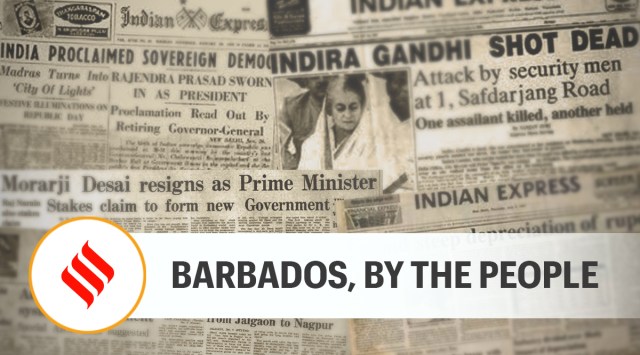
On Tuesday, at the stroke of the midnight hour, the republic of Barbados was born. The Caribbean island nation, 55 years after its independence, got rid of the remnants of colonial rule by separating from Britain — Queen Elizabeth is no longer the head of state. In one sense, being a part of the British empire — as Canada, Australia and 15 other realms continue to be — was merely a symbolic vestige of colonialism. But some symbols carry in them the memories and structures of violence and inequality, and are examples of how the world order continues to be determined by them.
Barbados was a part of the British Empire for over 400 years, a link in the lines of trade, commerce and oppression that English mercantilism and colonialism fostered for centuries. Slaves, indentured labour, a lack of democracy — the Caribbean was home to some of the most institutionalised and invisibilised horrors in history. Today, the new republic faces an economic crisis because of supply lines being disrupted thanks to the pandemic. Meanwhile, the countries that ravaged the economies of their colonies have continued to prosper, in no small part thanks to that wealth.
But the declaration of a republic is more than repudiation. It is an acknowledgement, as the country’s first president, Sandra Mason put it, that “We the people are Barbados”. And the fact that Charles Windsor, next in line for the British throne, attended and supported the celebration in Barbados is a sign, hopefully, that the old hurts may be a thing of the past. However, for many in the Caribbean — including in Barbados — and beyond, the inequalities of the colonial past continue to determine their present. The British Royal family, for example, made a substantial amount of money from the slave trade. The demand for reparations is based on that reality.
This editorial first appeared in the print edition on December 1, 2021 under the title ‘Barbados, by the people’.